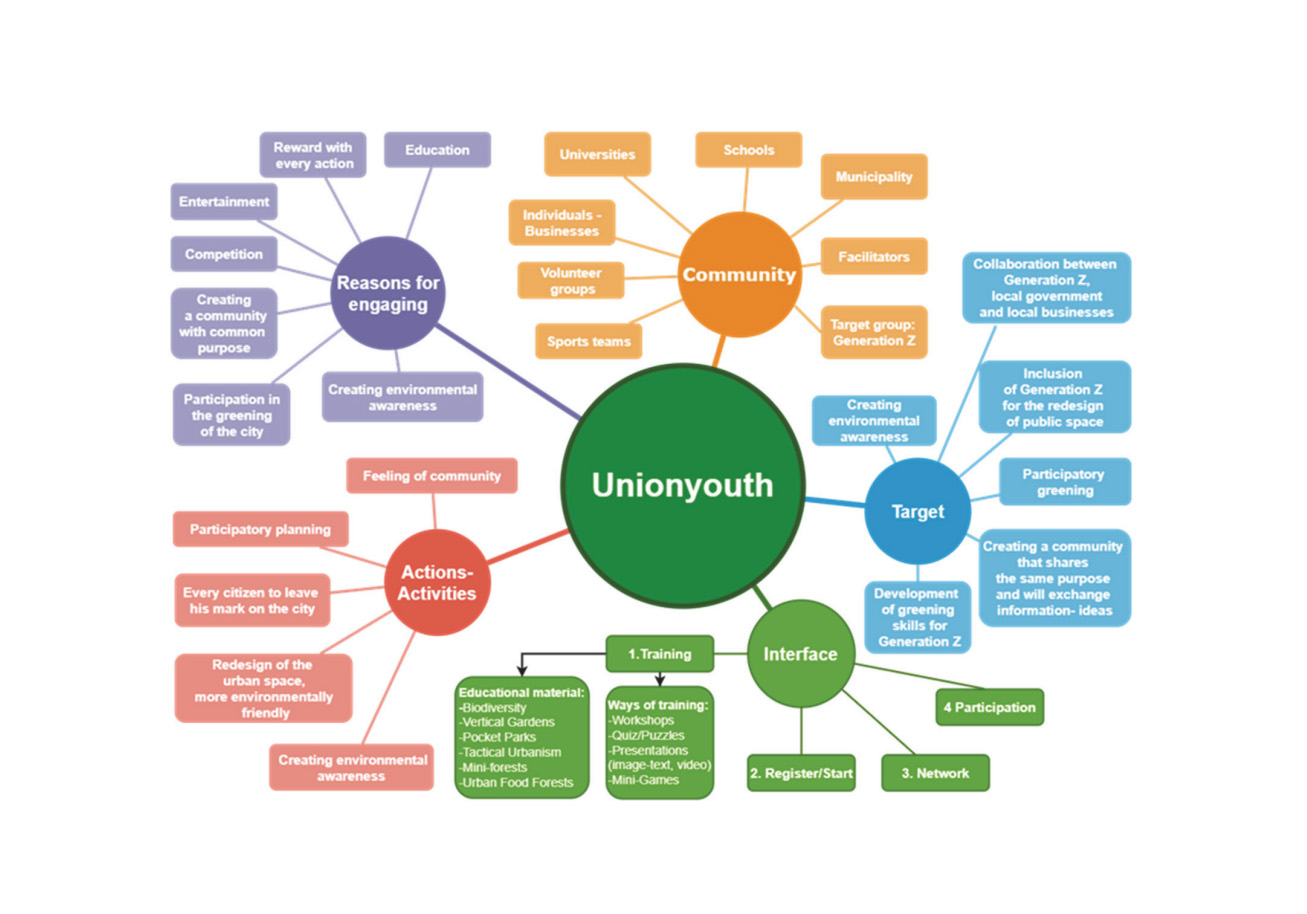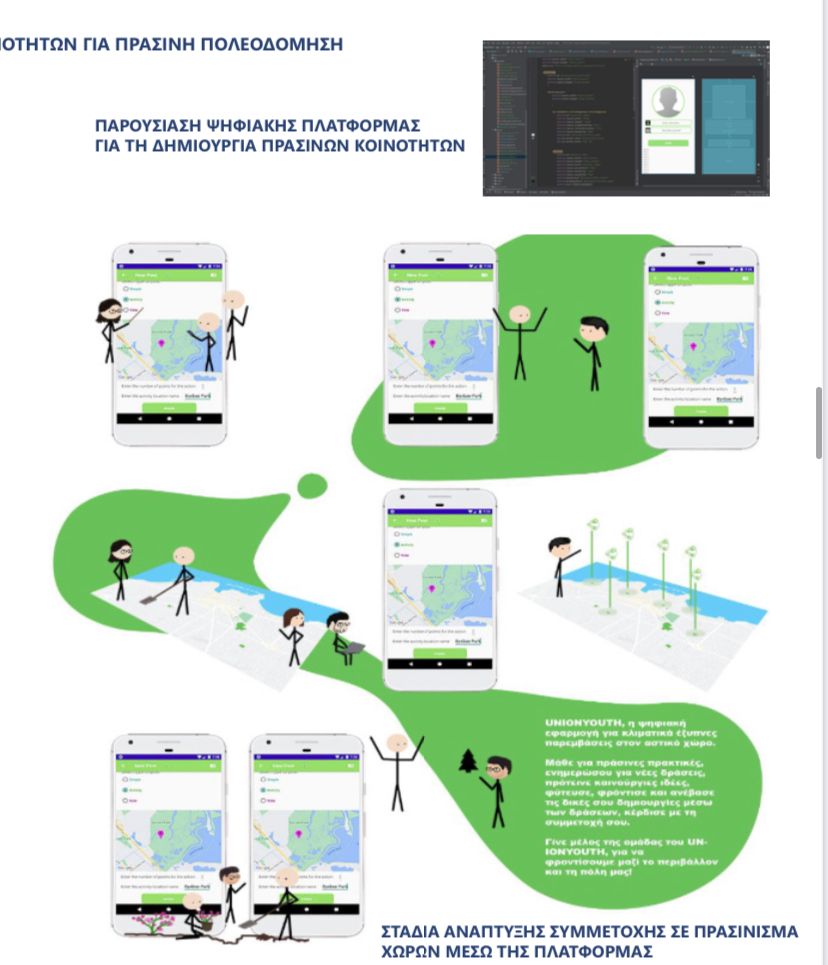The contemporary climate crisis pushed communities of actors, cities and citizens to use smart technology, digital platforms, and data-based intelligence to steer creative solutions for greening in their urban ecosystems. This phenomenon brought about an increasing imperative for citizen participation and inclusion, in the co-design of green infrastructures, suggesting alternative ways to deal with the lack or misuse of public space. In this framework, this paper analyzes the case of ”UnionYouth in Chania”, a project that aims a) to build an environmental awareness strategy for Generation Z, b) to promote capacity-building processes related to climate change and environmental protection, c) actually transform the city public space through participatory processes. Specifically, the project describes the creation of a digital platform and a mobile app consisting of several engagement tools that allow interaction between the digital community of youth, the city’s decision-makers, and city greening actors. Therefore, the first part of the paper talks about the necessity of promoting today’s participatory processes in the city for climate change mitigation through a literature review that emerged in the last decade. The second part of the paper examines a case study, namely UnionYouth in Chania, a digital collaborative platform that promotes methods for greening the city through district-based, activity-based, and network-based redesign solutions. The third part of the paper brings about interesting reflections on the relationship between the analog and digital world, and how bottom-up processes may be an important tool in city planning. The overall scope of the analysis of the specific case study is to bring insights into the architectural world, as a means to create more bridges with citizens and communities and contribute to their greening understanding.
Keywords: Climate Change, Generation Z, Green Infrastructure, Raise Awareness, Mobile Application, Participatory Design, Smart City.
team members: Vasiliki Geropanta, Anna Karagianni, Panagiotis Parthenios, Triantafyllos Ampatzoglou, Loukas Fatouros, Vasiliki Simantiraki, Orestis Brokos-Melissaratos, Dimitris Eleftheriadis.
Project leader: assistant Professor Vasiliki Geropanta





